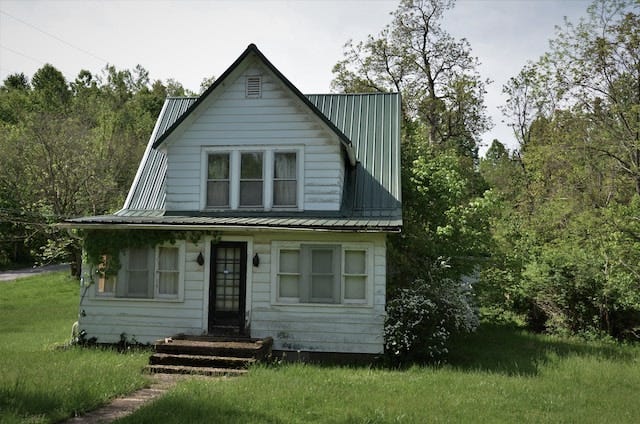Trap Houses: Unveiling the Complex World Beyond Stereotypes - 4 minutes read
Introduction:
In the urban landscape, the term “trap house” carries complex connotations, often shrouded in mystery and misconception. This article explores the multifaceted world of trap houses, exploring their origin, impact on communities, and the legal landscape surrounding them.
Understanding the Origin and Evolution
What is a trap house? Trap houses have roots deeply embedded in urban communities, originating as spaces for illicit activities. Over the years, they have evolved, adapting to societal changes and law enforcement strategies.
The Cultural Impact of Trap Houses
Beyond their legal implications, trap houses have left an indelible mark on pop culture, influencing music, fashion, and language. Understanding their cultural impact provides insight into their significance.
Legal Implications and Challenges
Operating a trap house comes with legal consequences. This section will explore law enforcement's challenges in tackling these establishments and the legal repercussions for those involved.

Common Misconceptions Surrounding Trap Houses
Dispelling myths and misconceptions is crucial in understanding the true nature of trap house meaning. This section will address prevalent stereotypes and offer a more nuanced perspective.
Characteristics of a Trap House
Location Matters: Where Trap Houses Are Found
Trap houses are not confined to a specific geographic location. This section will explore the varied settings where trap houses can be found, from inner-city neighbourhoods to suburban areas.
Structure and Layout
Understanding the physical aspects of trap houses provides insights into their functionality. This section will discuss the typical structure and layout of these establishments.
The Inherent Dangers and Risks
Beyond legal consequences, trap houses pose inherent dangers to those involved. This section will highlight the risks associated with operating and frequenting these spaces.
The Role of Trap Houses in Communities
Economic Impact
Trap houses often operate in economically disadvantaged areas. This section will explore the economic impact of these establishments on both the community and those involved.
Social Dynamics and Relationships
The influence of trap houses extends beyond economics, affecting social dynamics and community relationships. This section will examine the ripple effects on interpersonal connections.
Addressing Community Concerns and Solutions
Communities affected by trap houses face unique challenges. This section will discuss potential solutions and initiatives to address concerns and foster positive change.
Law Enforcement and Trap Houses
Strategies for Combating Trap Houses
Law enforcement agencies employ various strategies to combat trap houses. This section will delve into the tactics used to dismantle these establishments.
Legal Consequences for Operating a Trap House
Understanding the legal consequences for individuals involved in trap houses is crucial. This section will outline the legal penalties and repercussions of operating such establishments.
Navigating the Grey Areas
Ambiguities in Trap House Legislation
The legal landscape surrounding trap houses is not always clear-cut. This section will explore the ambiguities in legislation and their impact on law enforcement efforts.
Case Studies: Notable Trap House Incidents
Examining real-world examples provides context to the challenges faced by law enforcement. This section will present case studies of notable trap house incidents and their outcomes.
Beyond Stereotypes: Real Stories from Trap House Residents
Challenges Faced by Residents
Individuals residing in trap houses often face numerous challenges. This section will shed light on the difficulties experienced by residents and the factors contributing to their predicament.
Success Stories and Paths to Redemption
Despite the challenges, some trap house residents find paths to redemption. This section will share success stories and initiatives contributing to breaking the cycle.
Breaking the Cycle
Community Initiatives and Rehabilitation Programs
Communities play a pivotal role in breaking the cycle of trap houses. This section will highlight successful community initiatives and rehabilitation programs addressing the root causes.
Addressing Root Causes of Trap Houses
Understanding the root causes of trap houses is essential for sustainable change. This section will explore factors contributing to the existence of trap houses and strategies to address them.
Conclusion:
In conclusion, trap houses represent a complex and multifaceted issue in urban communities. By dispelling myths, understanding their characteristics, and addressing root causes, we can work towards creating positive change.
FAQs:
Are Trap Houses Only Found in Urban Areas?
Trap houses can be found in various settings, including both urban and suburban areas.
What are the legal consequences that individuals face for operating trap houses?
Operating a trap house can lead to severe legal penalties, including fines and imprisonment.
How Do Trap Houses Impact Local Economies?
Trap houses in economically disadvantaged areas can further strain local economies, contributing to cycles of poverty.
Are There Success Stories of Individuals Leaving Trap House Lifestyles?
Yes, there are success stories of individuals breaking free from trap house lifestyles through rehabilitation programs and community support.
What Can Communities Do to Address the Challenges Posed by Trap Houses?
Communities can initiate awareness programs, support rehabilitation efforts, and work with law enforcement to address the challenges posed by trap houses.